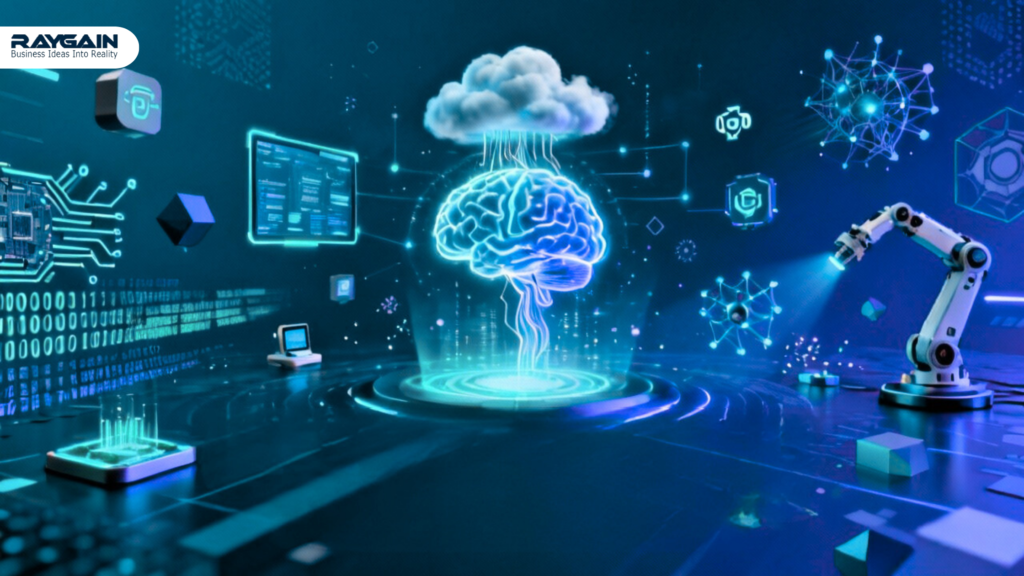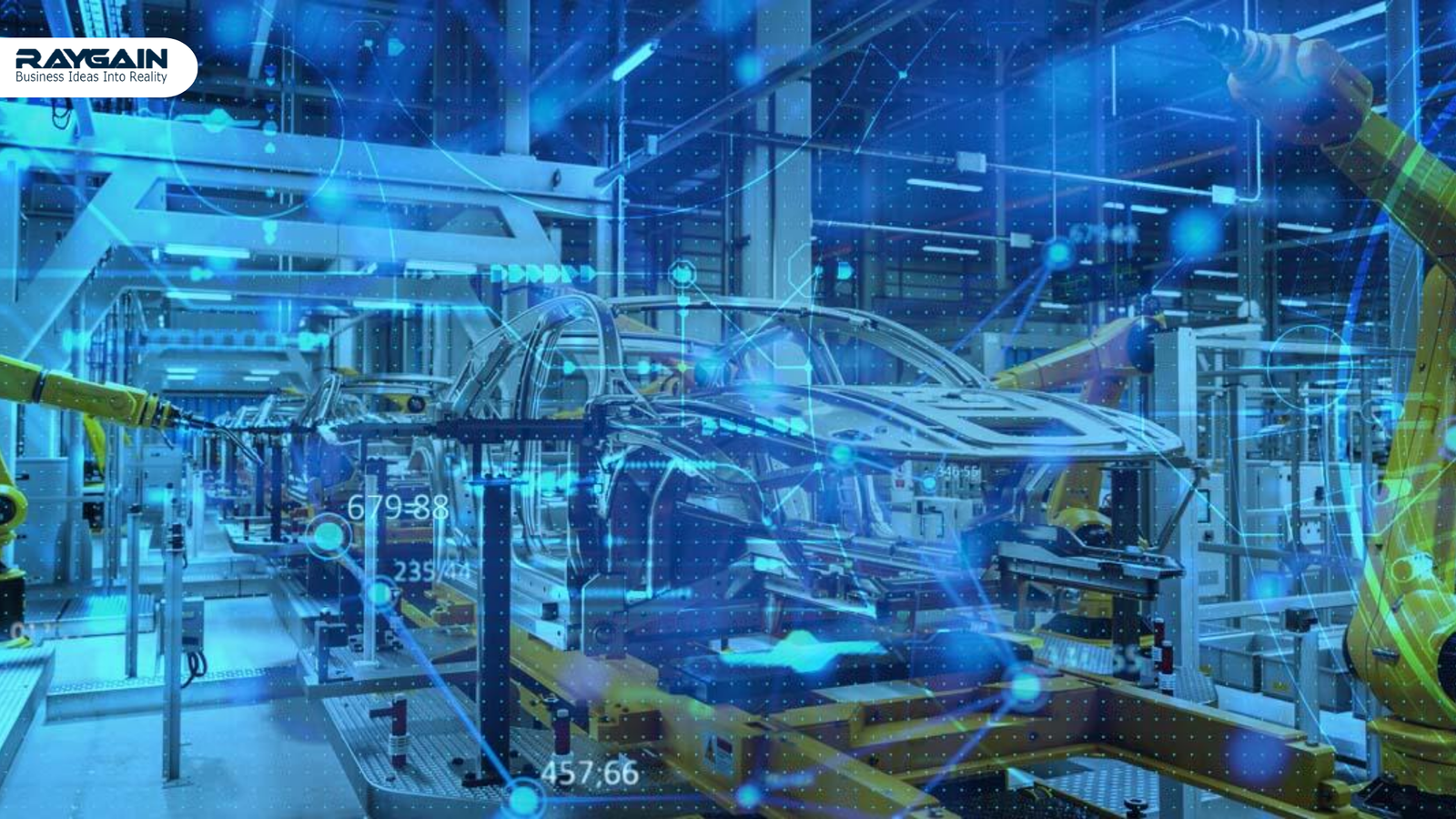In 2025, no longer will businesses ask if they should move into digital transformation but rather how quickly they can do so. As industries keep on changing with automation, AI, and 5G connectivity, digital transformation services are now the backbone of sustainable growth and innovation.
From optimizing operations to customer experience, digital transformation services help businesses to be more agile, data-driven, and competitive in the dynamic market. Let’s see why these services are the new growth engine for organizations in 2025 — and how forward-thinking enterprises are turning technology into tangible business value.
What are Digital Transformation Services?
Digital transformation services are a set of strategic, technological, and operational solutions that help organizations modernize their legacy systems by automating workflows, integrating advanced technologies, and delivering frictionless digital experiences.
They integrate multiple disciplines—cloud computing, AI, IoT, data analytics, and cybersecurity—in one core to make the enterprise smarter, connected, and efficient.
In 2025, these services are not restricted to IT modernization alone but are deeply ingrained in every business function, from HR and finance to supply chain to customer engagement.
The Global Acceleration of Digital Transformation
According to Gartner, global spending on digital transformation will surpass $3.4 trillion by 2026. This exponential growth has been fueled by a number of market shifts:
• Remote work normalization: Companies continue to invest in digital tools that enable hybrid and remote operations.
• AI-driven decision-making: Predictive analytics and machine learning are driving faster, data-informed strategies.
• Personalization of customer experience: Enterprises are reimagining customer journeys based on automation and real-time insights.
• Cyber Resilience: Services of digital transformation are also strengthening enterprise security frameworks amidst rising cyber threats.
This surge clearly indicates that digital transformation is not just a technology trend, but a foundation for making businesses resilient and competitive.
Top Reasons Digital Transformation Services Drive Growth in 2025
1. Operational Agility and Automation
Modern businesses operate under immense pressure to deliver more with less and in less time. Digital transformation services allow the automation of repetitive tasks, accelerate workflows, and establish harmony across departments through integrated digital ecosystems.
From manufacturing to finance, companies that automate become agile and can quickly respond to market disruptions while continuing to deliver value.
2. Data-Driven Decision Making
In fact, every business in this modern era is a data business. Digital Transformation Services embeds advanced analytics and AI tools, turning raw data into actionable insights.
In 2025, analytics-driven decision-making in real time will enable enterprises to spot market trends, predict customer behavior, and optimize performance in seconds.
3. Improved Customer Experience
Customer expectations are changing fast. Digital-first engagement is the new normal.
With digital transformation services, organizations can enable personalized, frictionless, and omnichannel experiences through chatbots, CRM automation, and AI personalization engines.
The result? Higher satisfaction, stronger loyalty, and better retention rates.
4. Improved Scalability and Flexibility
Cloud-based transformation solutions allow for scaling up or down easily with enterprise needs as business demands grow.
Whether it’s integrating new tools, expanding infrastructure, or entering new markets, digital transformation services make sure that scalability and flexibility are ensured for rapid growth without the burden of heavy upfront investments.
5. Improved Cybersecurity and Compliance
Cyber threats are now more sophisticated and multifaceted due to the connectedness of systems. Advanced cybersecurity frameworks and compliance management tools are built into modern digital transformation services in order to protect sensitive data and maintain trust.
This level of protection is critical for growth and sustainability in regulated industries like healthcare, manufacturing, and finance.
Key Technologies Powering Digital Transformation in 2025
A convergence of breakthrough technologies is powering Digital Transformation in 2025:
• Artificial Intelligence & Machine Learning: For predictive analytics, automating processes, and making better decisions.
• Cloud Computing: Scalable, flexible, and cost-effective for distributed systems.
• Internet of Things: Connects devices, assets, and people in real time for operational visibility.
• 5G Connectivity: This enables fast data transfer and also low-latency industrial communication.
• Blockchain: Improved transparency, traceability, and security of data in transactions.
• Edge Computing: Data processing nearer to the source for quicker insights and lower latency.
When well-orchestrated, these technologies can empower enterprise businesses to innovate at higher speeds and build ever-evolving digital ecosystems.
How Businesses Are Leveraging Digital Transformation Services
Organizations in all industries are finding real-world benefits:
• Manufacturing: Smart factories use IoT and AI analytics to improve production, reduce downtime, and enhance worker safety.
• Retail: Omnichannel digital platforms provide personalized shopping experiences while optimizing supply chains.
• Healthcare: AI-assisted diagnostics and secure telehealth platforms upgrade patient care and access to facilities.
• Finance: Cloud-based automated systems enhance speed, compliance, and fraud detection in transactions.
Each of them illustrates how the services of digital transformation allow for end-to-end modernization, driving efficiency and profitability.
Challenges in Digital Transformation — and How to Overcome Them
Yet digital transformation also comes with its challenges:
• Resistance to change is one of the biggest barriers to employee adaptability.
• Complexity of legacy systems: Most organizations have difficulty integrating older IT platforms.
• Skill shortages: There are often not enough tech-savvy professionals to meet demand.
• Security: This integration can develop new attack vectors.
It calls for collaboration with a reputable digital transformation services provider, providing a clear roadmap for implementation at each step and continued optimization—support that ensures measurable outcomes with mitigated risk.
Why Partner with Raygain Technologies
At Raygain Technologies, we help businesses accelerate their journey of digitalization with pioneering digital transformation services to fit your specific goals and needs.
Our experience covers:
• Cloud migration and infrastructure modernization
• AI and analytics-driven process automation
• IoT and 5G-enabled industrial connectivity
• Cybersecurity and Compliance Frameworks
• Scalable enterprise software integration
At Raygain, combining technology innovation with deep industry understanding empowers enterprises to improve efficiency, optimize operations, and drive the business toward sustainable growth.
The Future of Digital Transformation in 2025 and Beyond
The next wave of digital transformation will be more human-centered in building intelligent systems that effortlessly collaborate with humans.
As technologies like AI, automation, and 5G converge, those businesses that invest early in digital transformation services will realize a decisive competitive advantage—leading the way toward smarter, faster, and more sustainable operations.
By 2025, digital transformation is no longer optional; it’s the new driving engine for growth across global industries.










